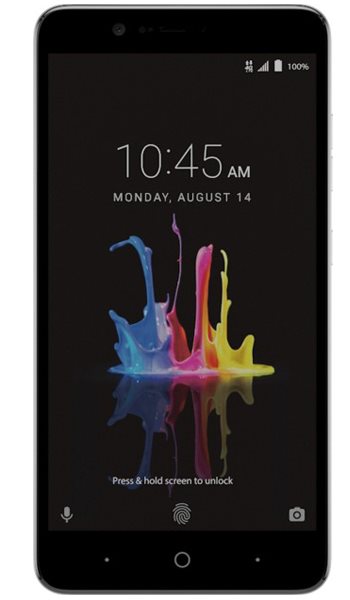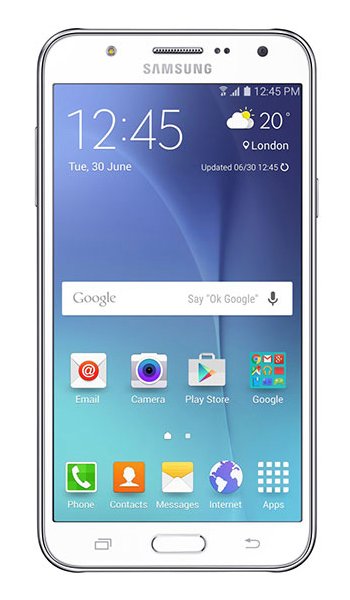ZTE Blade Z Max vs Samsung Galaxy J7 Comparison and Differences
Smartphone 1

ZTE Blade Z Max
Smartphone 2

Samsung Galaxy J7
Smartphone 3
ZTE Blade Z Max or Samsung Galaxy J7 Specs Comparison
or
 Common specs
Common specs
| Brand and model | ZTE Blade Z Max | Samsung Galaxy J7 | |
| Rating | (+0) | (+0) | |
| Release date | 2017, August | 2015, June | |
| Dimensions (HxWxD) | 166.1 x 84.6 x 8.4 mm | 6.54 x 6.54 x 3.33 in | 152.2 x 78.7 x 7.5 mm | 5.99 x 5.99 x 3.1 in | |
| Weight | 175 g | 6.17 oz | 171 g | 6.03 oz | |
| Body Build | Plastic body | ||
| Case | buy from Amazon | buy from Amazon | |
| Colors | Black | White, Black, Gold | |
| Battery | 4080 mAh, Non-removable Li-Ion | 3000 mAh, Removable Li-Ion | |
| Battery life |
Stand by time - Up to 528 h (3G) Talking time - Up to 31 h (3G) |
Talking time - Up to 18 h (3G) Music play - Up to 76 h |
|
| Approximate price | 130 USD | 200 EUR | |
| Check price | from Amazon | from Amazon |
 Screen
Screen
| Technology | IPS LCD | Super AMOLED | |
| Touchscreen | capacitive touchscreen | capacitive touchscreen | |
| Display colors | 16M | 16M | |
| Screen size | 6" in | 5.5" in | |
| Screen area | 99.2 cm2 | 83.4 cm2 | |
| Screen format | 16:9 (height:width) | 16:9 (height:width) | |
| Screen to body ratio | 70.6% | 69.6% | |
| Screen resolution | 1080 x 1920 px | 720 x 1280 px | |
| Screen PPI /points per inch/ | 367 PPI | 267 PPI | |
| Screen protection | Asahi Dragontrail Glass | ||
| Screen protector | buy from Amazon | buy from Amazon |
 Camera and Video
Camera and Video
| Rear camera, main | 16 MP, Dual | 13 MP, Single | |
| Camera specs | -16 MP, PDAF -2 MP, depth sensor |
-13 MP, f/1.9, 28mm (wide), AF | |
| Functions | LED flash, HDR, panorama | LED flash, panorama | |
| Video | 1080p@30fps | 1080p@30fps | |
| Front camera, selfie | 8 MP, Single | 5 MP, Single | |
| Specifications | 8 MP | 5 MP, f/2.2, 23mm (wide) | |
| Functions | LED flash |
 Performance
Performance
| Operating system - OS | Android 7.1.1 (Nougat) | Android 5.1 (Lollipop), upgradable to 6.0.1 (Marshmallow) | |
| Chipset | - Qualcomm MSM8940 Snapdragon 435 (28 nm) | - Exynos 7580 Octa - Qualcomm MSM8939 Snapdragon 615 (28 nm) |
|
| CPU | - Octa-core 1.4 GHz Cortex-A53 | - Octa-core (4x1.4 GHz Cortex-A53 & 4x1.0 GHz Cortex-A53) -Octa-core 1.5 GHz Cortex-A53 |
|
| GPU | Adreno 505 | Adreno 405 Mali-T720MP2 |
|
| External memory | microSD, up to 128 GB | microSD, up to 256 GB (dedicated slot) | |
| Internal memory | 32 GB, 2 GB RAM | 16 GB, 1.5 GB RAM |
 Benchmark
Benchmark
| GeekBench 5 Single Core | 124 | 117 | |
| GeekBench 5 Multi-Core | 586 | 434 | |
| GeekBench 4 Single Core | 673 | 693 | |
| GeekBench 4 Multi-Core | 2516 | 3327 | |
| GeekBench 4 RenderScript | 2331 | 1997 |
 Communication and Connectivity
Communication and Connectivity
| SIM card | Nano-SIM | Single SIM (Micro-SIM)Dual SIM (Micro-SIM, dual stand-by) | |
| Network | GSM / HSPA / LTE | GSM / HSPA / LTE | |
| Bands | -2G - GSM 850 / 900 / 1800 / 1900 - SIM 1 & SIM 2 -3G - HSDPA 850 / 1700(AWS) / 1900 -4G - LTE band 2(1900), 4(1700/2100), 5(850), 12(700), 66(1700/2100) |
-2G - GSM 850 / 900 / 1800 / 1900 - SIM 1 & SIM 2 (dual-SIM model only) -3G - HSDPA 850 / 900 / 1900 / 2100 -4G - LTE band 1(2100), 3(1800), 5(850), 7(2600), 8(900), 20(800), 40(2300) |
|
| Speed | HSPA 42.2/5.76 Mbps, LTE-A (2CA) Cat6 300/50 Mbps | HSPA 21.1/5.76 MbpsHSPA, LTE Cat4 150/50 Mbps | |
| GPRS | Yes | Yes | |
| Edge | Yes | Yes | |
| Wi-Fi | Wi-Fi 802.11 b/g/n, Wi-Fi Direct, hotspot | Wi-Fi 802.11 b/g/n, Wi-Fi Direct, hotspot | |
| GPS | Yes, with A-GPS, SUPL | Yes, with A-GPS, GLONASS | |
| NFC | Yes (Snapdragon model only) | ||
| USB | Type-C 1.0 reversible connector | microUSB 2.0 | |
| Bluetooth | 4.2, A2DP, LE | 4.1, A2DP | |
| Harmful irradiation |
SAR - 1.25 W/kg (head) 1.36 W/kg (body) SAR EU - 0.50 W/kg (head) 0.37 W/kg (body) |
 Music and Audio
Music and Audio
| Radio | FM radio | FM radio, RDS, recording | |
| Headphone jack | Yes | Yes | |
| Others | - Active noise cancellation with dedicated mic -Dolby Surround Sound |
 Other features
Other features
| Sensors | - Fingerprint (rear-mounted), accelerometer, gyro, proximity, compass | - Accelerometer, proximity | |
| Other extras |
- Fast battery charging (Quick Charge 2.0) |
- ANT+ |
|
| Versions |
- For MetroPCS. Also known as ZTE Blade Z Max Z982. |
- Versions: J700F (India, Thailand); J700M (LATAM); J700M/DS (Brazil); J700H with no LTE (South Africa, Pakistan, Vietnam, Philippines, Russia); J700T (T-Mobile, Metro PCS); J700P (Virgin Mobile, Boost) |
Reviews and Opinions on ZTE Blade Z Max and Samsung Galaxy J7
If you had to recommend one of these phones to a friend, which one would it be and why? Share your arguments using the Add Opinion button!
